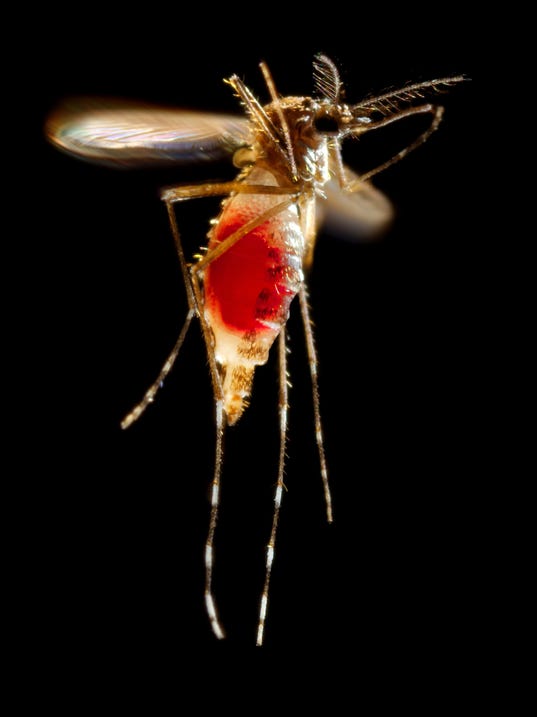At least 20 New Jersey residents have tested positive for chikungunya, a mosquito-borne virus that has spread through the Caribbean. (July 30) AP

(Photo: James Gathany, CDC)
Chikungunya, a mosquito-borne virus that has swept through the Caribbean in recent months, is making gains in the United States, the Centers for Disease Control and Prevention says.
The CDC issued a count this week indicating almost 400 cases have been diagnosed in non-Caribbean areas of the United States this year, all but two of them contracted outside the United States. Another 215 cases were diagnosed in Puerto Rico, where 199 were contracted locally. Florida leads the way among states, with 107 cases, and its two locally contracted cases are the only ones in the continental U.S.
“With the recent outbreaks in the Caribbean and the Pacific, the number of chikungunya cases among travelers visiting or returning to the United States from affected areas will continue to increase,” the CDC said.
Officials said that chikungunya (pronounced chik-un-GUHN-ya) — spread by bites from infected Aedes aegypti or Aedes albopictus mosquitoes — is not contagious from person to person, is typically not life-threatening and will likely resolve on its own.
Chikungunya causes symptoms such as fever and joint pain within a week after a person is bitten by an infected mosquito. Patients can also develop severe headaches, muscle pain and swollen joints. There is no vaccine and no specific treatment.
From 2006‒2013, studies identified an average of 28 people per year nationwide with positive tests for recent chikungunya virus infection. All were travelers visiting or returning to the United States from affected areas, mostly in Asia.
In late 2013, chikungunya virus was found for the first time in the Americas on islands in the Caribbean. The CDC notes that travelers can protect themselves by preventing mosquito bites. Other advice: When traveling to countries with chikungunya virus, use insect repellent, wear long sleeves and pants and stay in places with air conditioning or that use window and door screens.
The word chikungunya, from the East African Kimakonde language, translates loosely as contorted or hunched over from pain.